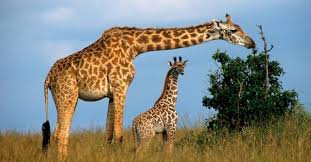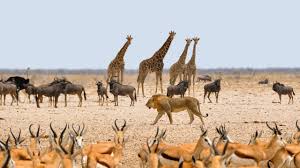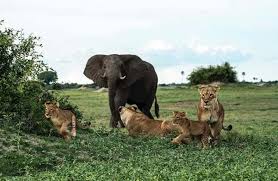Wildlife organisms vary in form, nature, and behavior, and these factors ultimately determine their economic value to humans. This value is derived from food supply, raw materials, social and religious services, and monetary benefits. Wildlife holds significant benefits for Nigeria, contributing notably to its socio-economic and environmental development.
Wildlife
Wildlife refers to all non-domesticated plants, animals, and other organisms. The Nigerian Conservation Foundation (NCF, 1965) defined wildlife as “all living things, plants, invertebrate and vertebrate animals outside the direct control of man, i.e., non-cultivated plants and non-domesticated animals.”
However, many wild plants and animals have been domesticated for human benefit, impacting the environment positively or negatively. Wildlife can be found in all ecosystems, including deserts, rainforests, plains, and even highly developed urban areas.
Read Also: How To Grow Cassava
Importance of Wildlife

Wildlife is essential due to its numerous benefits, categorized into food and raw materials, social services, monetary gains, and cultural or religious significance.
1. Food and Raw Material Benefits: Wildlife provides valuable resources, including:
a. Edible meat (bushmeat) from hunting and game, which is highly valued as a source of animal protein in rural and urban areas.
b. Raw materials for traditional medicine, such as primates and pangolins, known for their aphrodisiac properties.
c. Raw materials for clothing, leatherwork, and tools, such as robes from muskox, shoes, and local drums.
Read Also: How To Make Cassava Bread Recipe
d. Art and craftworks, including souvenirs and traditional decorations.

2. Social Services: Wildlife offers various social services, such as:
a. Outdoor recreation activities like hiking, bird feeding, big game hunting, sport fishing, and wildlife photography.
b. Wildlife serves as an outdoor laboratory for students studying ecology, animal behavior, and related courses. Educational TV shows like National Geographic Specials, BBC Natural History, and Animal Planet also highlight wildlife’s role in learning.
c. Tourism and ecotourism are growing industries, generating substantial income for many nations, especially in Africa and India.
d. Wildlife and nature organizations foster environmental awareness and protection.
e. Wildlife contributes to environmental quality, as the health of wildlife indicates the health of the environment.
f. Inspiration for human activities, including art, music, dance, storytelling, and traditional ceremonies, often comes from interactions with wildlife.
3. Monetary Benefits: Wildlife offers financial gains through:
a. Gate fees from tourists visiting national parks and reserves.
b. Hunting permits and licenses for wildlife-related activities.
c. Sales of wild animals and wild harvests that generate income and job opportunities in wildlife-related sectors.
d. Export of live animals and wildlife products.
e. Sport hunting and recreational fishing contribute to local economies.
4. Religious and Cultural Benefits: Wildlife holds religious and cultural significance, including:
a. Sacred animals used in religious rituals due to their perceived spiritual significance, such as the muskox in Canada and eagles and hawks among Native Americans.
b. Wildlife species contribute to essential ecological functions such as pollination, seed dispersal, nutrient recycling, and habitat maintenance. These functions are vital to agriculture, medicine, and science, including the development of new drugs and treatments.
5. Economic Importance of Wildlife in Nigeria: Wildlife plays a critical role in Nigeria’s social, economic, and environmental development. Its benefits include:
i. Source of Animal Protein: Bushmeat serves as an essential source of animal protein for rural populations in Nigeria.
ii. Game Viewing and Tourism: Wildlife reserves, zoos, and museums offer opportunities for recreation, education, and tourism, generating income for the country.
iii. Revenue from Exports: Wildlife contributes to Nigeria’s foreign exchange earnings through the export of wildlife products.
iv. Employment Opportunities: Local hunters are employed as game patrols and guards in wildlife reserves. Other jobs include clerks, drivers, and game scouts. Local communities participate in conservation efforts and the management of wildlife reserves.
v. Education and Research: Wildlife parks, zoos, and botanical gardens offer platforms for education and research, including studies on animal behavior and ecology. Common mammals such as rats and primates are used in medical and science laboratories for research.
vi. Wildlife By-products: Many wildlife by-products, such as skins, feathers, horns, bones, and organs, are used in traditional medicine, folklore, and cultural practices in Nigeria.
Wildlife serves humanity in various capacities, providing food, raw materials, social services, religious significance, and monetary benefits. It plays an essential role in sustaining ecosystems, supporting environmental health, and contributing to Nigeria’s socio-economic and cultural development.
Do you have any questions, suggestions, or contributions? If so, please feel free to use the comment box below to share your thoughts. We also encourage you to kindly share this information with others who might benefit from it. Since we can’t reach everyone at once, we truly appreciate your help in spreading the word. Thank you so much for your support and for sharing!
Frequently Asked Questions
We will update this section soon.

